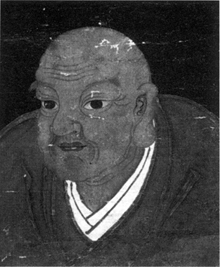The current issue of Tricycle features an interview by contributing editor Clark Strand with Daisaku Ikeda, President of Soka Gakkai International. The interview, which was made available online, has become one of our most widely read web articles. Soon after it was posted, Buddhajones, an independent Nichiren-themed site, developed a thread with comments (many evidently posted by former SGI members) many of which criticized SGI and Tricycle for not being more critical of the organization. Below is editor-at-large Andrew Cooper’s entry to the thread, which was meant, in his words, to explain, how the magazine “viewed this interview as an editorial matter.” It might be of interest here, as the points it makes are relevant not only to that particular article but also to issues of diversity and inclusiveness for meditation-oriented Buddhists, as well as the sometimes thorny task of dealing editorially with controversies within Buddhist communities. Below is a slightly abridged version.
My name is Andrew Cooper and I am the Tricycle editor who worked with Clark Strand to develop his interview with Daisaku Ikeda. Please allow me to address, in a general way, some of the concerns raised in this thread. It would be presumptuous of me to attempt to speak to the specific disagreements among Nichiren Buddhists, but I can try to explain how we at Tricycle viewed this interview as an editorial matter.
I think it is important to understand that, while Tricycle is a nonsectarian and independent publication, most of our content reflects the perspective of what might be called meditation-oriented Buddhism. Most of our readers know Buddhism in terms of the meditation traditions of Zen, vipassana, or vajrayana as they have been presented to a Western audience. Indeed, I don’t think it is an exaggeration to say that, for many of our readers, approaches to Buddhism that are not based on a practice of quiet, focused sitting meditation are, other than in name, scarcely recognizable as Buddhist at all. As a nonsectarian publication, we have come to feel that we have an obligation to promote a richer and more inclusive dialogue among different Buddhist communities. This is not an easy thing. Meditation-oriented Buddhists often think of Nichiren Buddhists (if they think of them at all) with condescension and little real knowledge. The same is true in how they tend to view Pure Land Buddhists. The interview with Daisaku Ikeda should be seen as part of our attempt over the past few years to make Nichiren and Pure Land Buddhism more intelligible to our readers, to help our readers see these traditions as those within them understand them.
The point is not to change the basic orientation of Tricycle; rather, it is to deepen the conversation among Western Buddhists. We felt it fitting and appropriate to treat Daisaku Ikeda with the same respect we would show any other prominent Buddhist leader. Not to do so, especially in a first interview, would not only be disrespectful to him but also to the tradition he represents. We certainly did not want to convey that we would treat, say, a Tibetan Buddhist leader with greater deference than a Nichiren Buddhist leader. At least one of the posts observed that Tricycle is not concerned with taking a critical look at Buddhism. I don’t think this is true. There is, however, a question about what kind of criticism makes sense in a publication aimed at a broad cross-section of Buddhists and at non-Buddhists with an interest in Buddhist ideas and practices. The kind of criticism we think works best is that which intelligently challenges people’s unexamined assumptions, historical biases, and misconceptions about Buddhism, spirituality, religion, and so forth.
Controversies within particular communities—and we hear of many of them—tend to be less edifying. Such matters are usually too complex to be adequately dealt with briefly yet too geared to a specific community’s concerns to be of compelling interest to a general readership. There have been exceptions, times when we have felt it was worth the effort to delve into a deeply fraught situation. But that just was not what we thought was called for given that we were already working against a lot prejudice and misconceptions. One last point: in the same issue in which the Ikeda interview appears there is a major feature on the Nipponzan Myohoji order of Nichiren Buddhism. I hope contributors to this thread will be glad to hear this. In any case, it does demonstrate that our intention to help our readers gain some insight into Nichiren Buddhism was not confined to SGI. Though I am not the author of the article, I did contribute a short sidebar, a remembrance of a brief, memorable meeting I had many years ago with the founder of Nipponzan, Nichidatsu Fujii, a most remarkable man. Yours in the dharma, Andrew Cooper
Read more: Faith in Revolution
Thank you for subscribing to Tricycle! As a nonprofit, we depend on readers like you to keep Buddhist teachings and practices widely available.
